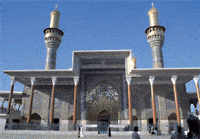Middle East/bric

|
|
investors branch out |
In the wake of September 11, 2001, many Middle Eastern investors pulled their money from Western markets and began looking for sound investments closer to home. At the same time, the region has been awash with petrodollars, which have also come home to roost in the form of investment in local real estate, telecoms, logistics and the tourism sectors. The wealth of liquidity stockpiled in the Middle East resulted in a surge on local stock markets between 2004 and 2005, particularly in the GCC countries. Equity markets were going gangbusters, and investors got spoiled as they came to expect massive returns year in, year out, remarks Rushdi Siddiqui, global director of Dow Jones Islamic Market Indexes.
The inevitable happened: The Gulf Cooperation Council (GCC) markets are now witnessing a correction as stock markets return to more realistic levels. However, according to Siddiqui, GCC investors are still looking for high investment returns and the opportunity to diversify their portfolios beyond their own region. And most of them, he says, are looking east. We are seeing a lot of interest in Malaysia, China, Singapore and India, he says. Malaysia recently issued three Islamic banking operating licenses, which were taken by three GCC institutions, and three Shariah-compliant real estate funds were just launched out of China.
To help GCC investors gain exposure to the most sought-after emerging markets and follow Shariah-compliant investment principles, Dow Jones Indexes recently launched an Islamic Market BRIC Equal Weighted index, which measures the performance of companies in Brazil, Russia, India and China that pass screens for compliance with Islamic principles. Dow Jones Islamic index family excludes companies that sell alcohol, tobacco, pork products, financial services, defense/weapons and entertainment. Our screens are the industry standard for Shariah-compliant equity investing, says Siddiqui.
The new Islamic Market BRIC Equal Weighted index applies to mutual funds, exchange-traded funds and other investable products. It will complement the Dow Jones BRIC 50 blue-chip index, which was launched in June this year. Given the volumes of investment available, companies in the BRIC grouping may well find it is surprisingly beneficial to become Shariah-compliant.
Anita Hawser



